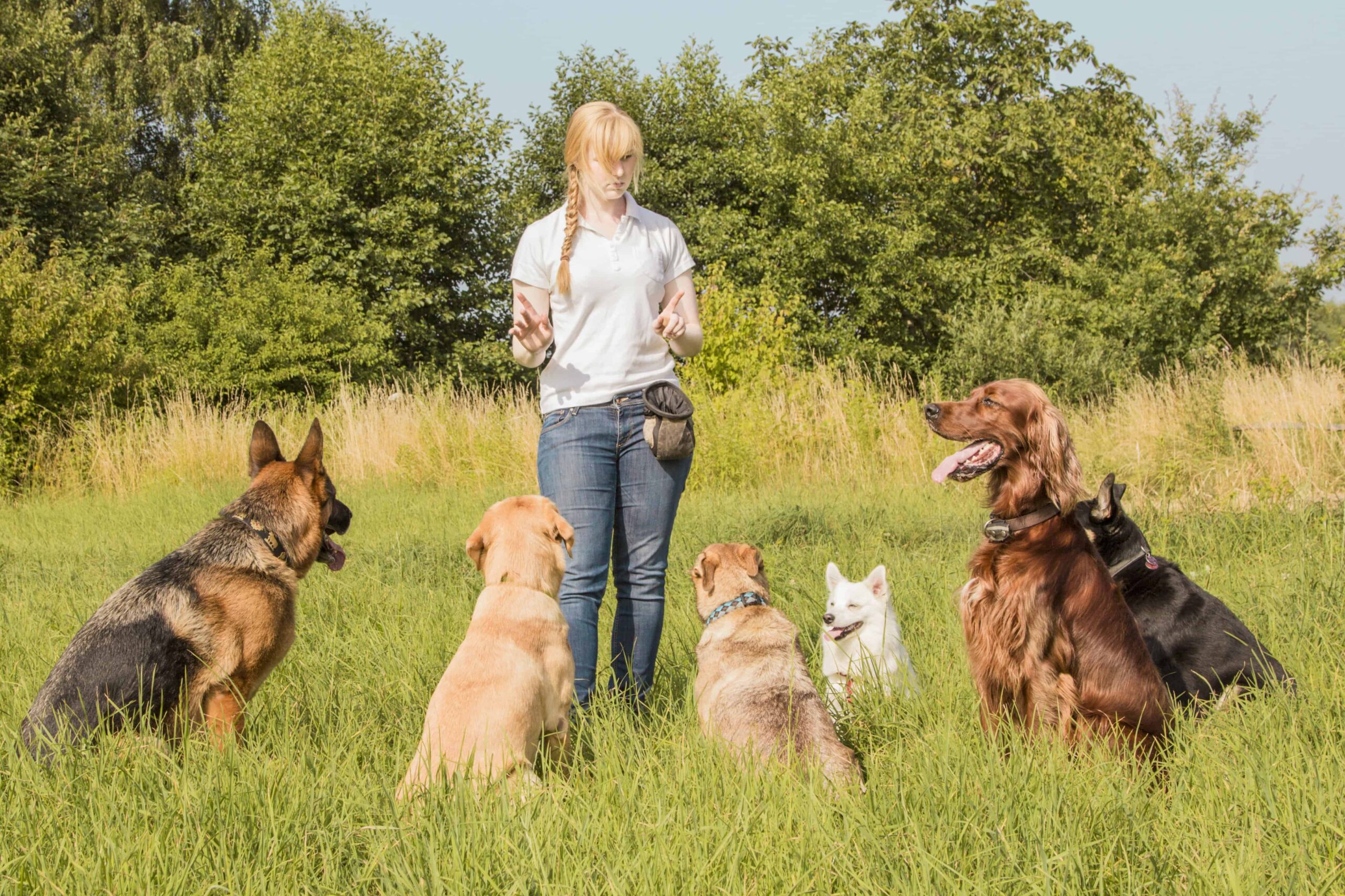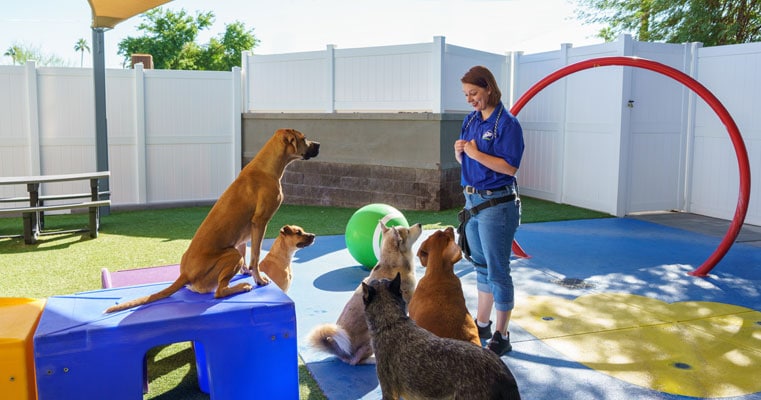Specialist Insights on Dog Training Charlotte NC: Transform Your Dog Today
Specialist Insights on Dog Training Charlotte NC: Transform Your Dog Today
Blog Article
Unlock Your Canine's Prospective: Proven Pet Dog Training Approaches for Success
Reliable pet dog training is a nuanced process that depends upon recognizing canine habits and utilizing scientifically backed techniques. Dog training. By incorporating positive reinforcement, establishing clear commands, and prioritizing socialization, dog owners can grow a productive relationship with their pets. Obstacles commonly develop that need tailored solutions and a patient strategy. Checking out these confirmed techniques discloses not just the capacity for behavior renovation but also the deeper bond that can be formed between proprietor and dog. What vital methods must be taken into consideration to absolutely open your dog's possibility?
Comprehending Canine Actions
Comprehending pet habits is important for reliable training and promoting a positive partnership between dogs and their owners. A detailed grasp of canine body language, articulations, and social interactions is crucial for acknowledging their feelings and needs. Pet dogs communicate mainly via non-verbal hints; for instance, a wagging tail may suggest exhilaration, while pinned ears can signal concern or entry.

Furthermore, environmental aspects play a substantial function in forming a canine's actions. Adjustments in regular, new surroundings, or the existence of unknown individuals can result in tension or stress and anxiety in canines. Recognizing these triggers enables owners to minimize damaging responses and develop appropriate training strategies.
Inevitably, a deep understanding of pet dog behavior lays the structure for effective training approaches, enhancing both behavior and the total bond in between the canine and its proprietor. dog training charlotte. This understanding is indispensable for promoting a well-adjusted, happy canine friend
Positive Reinforcement Strategies
Effective training counts heavily on favorable reinforcement strategies, which have been revealed to produce significant outcomes in shaping wanted habits in pets. This technique entails awarding a pet for displaying specific habits, thereby boosting the likelihood that these habits will be duplicated. Benefits can take numerous types, consisting of treats, praise, playthings, or playtime, depending upon what encourages the private dog.

It is important to slowly phase out benefits as the pet dog finds out the actions, transitioning to periodic reinforcement. This approach preserves the behavior over time while preventing reliance on constant incentives. By focusing on favorable support, trainers can grow a trusting relationship with their pet dogs, promoting a participating and healthy training setting that enhances total obedience and performance.
Developing Consistent Commands
A basic element of successful pet training is the establishment of regular commands. Consistency in commands is crucial for reliable communication between the dog and the fitness instructor. When commands are uniform, dogs discover to link particular words with wanted behaviors, which speeds up the training procedure and enhances understanding.
To develop regular commands, it is vital that his response all family members utilize the very same terminology and gestures. As an example, if a single person uses "rest" while an additional says "sit down," it can produce confusion for the pet. Select clear, distinctive words for commands and ensure everybody associated with the pet's training adheres to these choices.
Furthermore, rep is vital. Reinforce commands via frequent method, making sure that the pet receives ample opportunities to respond properly. When a pet dog efficiently complies with a command, prompt positive support should follow. This could be in the type of treats, praise, or playtime, strengthening the link in between the command and the action.
Lastly, hold your horses. Developing constant commands takes some time and effort. With dedication and clarity, you will certainly aid your pet dog establish a strong understanding of assumptions, inevitably resulting in a well-behaved companion.
Socializing and Exposure
Interacting socially a dog is essential for cultivating a well-adjusted and certain companion. This procedure entails revealing your canine to a variety of settings, people, and other pets to develop their social abilities and versatility. Early socialization, preferably in between the ages of three to fourteen weeks, is crucial, as it prepares for a canine's future behavior.
Throughout socialization, goal to offer favorable experiences in different setups, such as parks, busy roads, and homes with other pet dogs. Introduce your pet to various stimulations, including noises, sights, and scents, ensuring that each encounter is satisfying. This exposure assists mitigate concern and anxiety, paving the means for a more resistant dog.
Participating in regulated group play service cat training sessions with various other dogs can also boost social skills, showing your pet suitable communications and boundaries. Constantly monitor your pet's comfort level throughout these experiences, progressively enhancing direct exposure as their self-confidence grows. Keep in mind, the objective is to create a well-shaped pet that flourishes in varied scenarios, promoting a harmonious connection with both human beings and various other pets. Prioritizing socialization will significantly add to your pet dog's total joy and behavior throughout their life.
Overcoming Common Educating Obstacles
:strip_icc()/Steps-to-train-your-dog-1118273-7f3a74792b15472bb0d1f4884bd95875.jpg)
Pets may have a hard time to concentrate in unknown or active setups. Gradually desensitize your pet dog to distractions by starting training in a peaceful setting and gradually introducing more stimuli as they end up being skillful.
Additionally, behavioral problems like leaping or extreme barking can become aggravating. Address these by teaching alternative behaviors, such as sitting comfortably when welcoming visitors. Uniformity and perseverance are critical; reinforce desired behaviors regularly and prevent scolding, which can result in complication.
Finally, identify that each pet dog is special, and training timelines may vary. Tailor your method to your canine's private requirements, and look for expert support if needed. With determination and the ideal methods, getting rid of these difficulties can result in a well-trained, happy canine companion.
Verdict
Finally, opening a pet dog's prospective necessitates a comprehensive approach that includes an understanding of canine actions, the application of positive reinforcement strategies, and the facility of constant commands. Early socialization and direct exposure to diverse settings further boost a pet dog's versatility and confidence. By resolving typical training challenges with customized methods and patience, a unified and participating connection between pet and trainer can be promoted, ultimately leading to a well-behaved friend capable of growing in different situations.
Reliable dog training is a nuanced procedure that hinges on understanding kennel training an older dog canine behavior and using scientifically backed approaches.Comprehending pet habits is essential for efficient training and fostering a positive partnership between pets and their owners.Reliable training depends greatly on positive reinforcement strategies, which have been revealed to generate significant outcomes in forming desired habits in pets. When commands are uniform, pet dogs discover to link particular words with preferred actions, which accelerates the training process and boosts understanding.
In conclusion, unlocking a pet dog's possible necessitates a detailed strategy that incorporates an understanding of canine behavior, the application of positive support strategies, and the establishment of constant commands.
Report this page